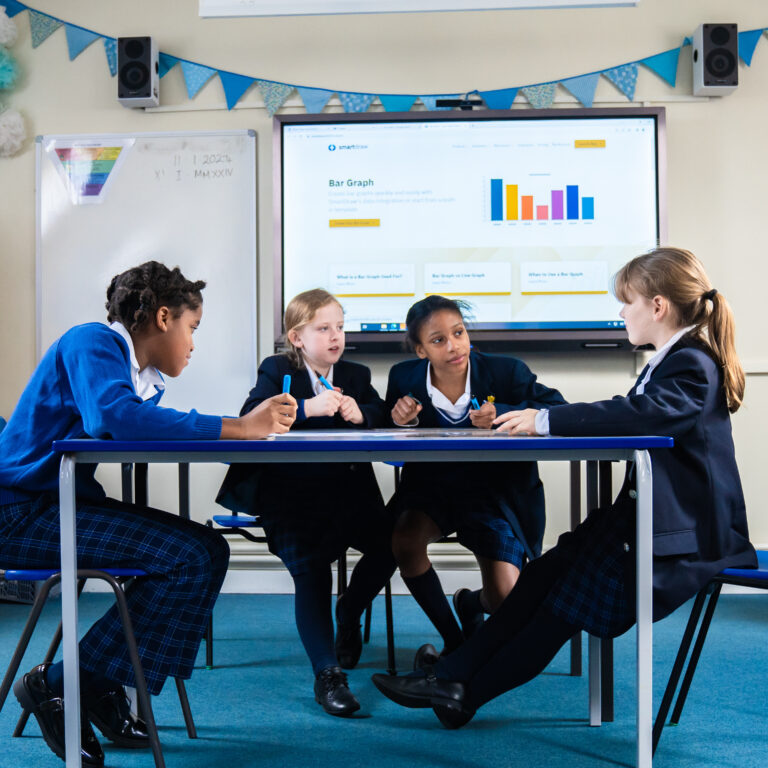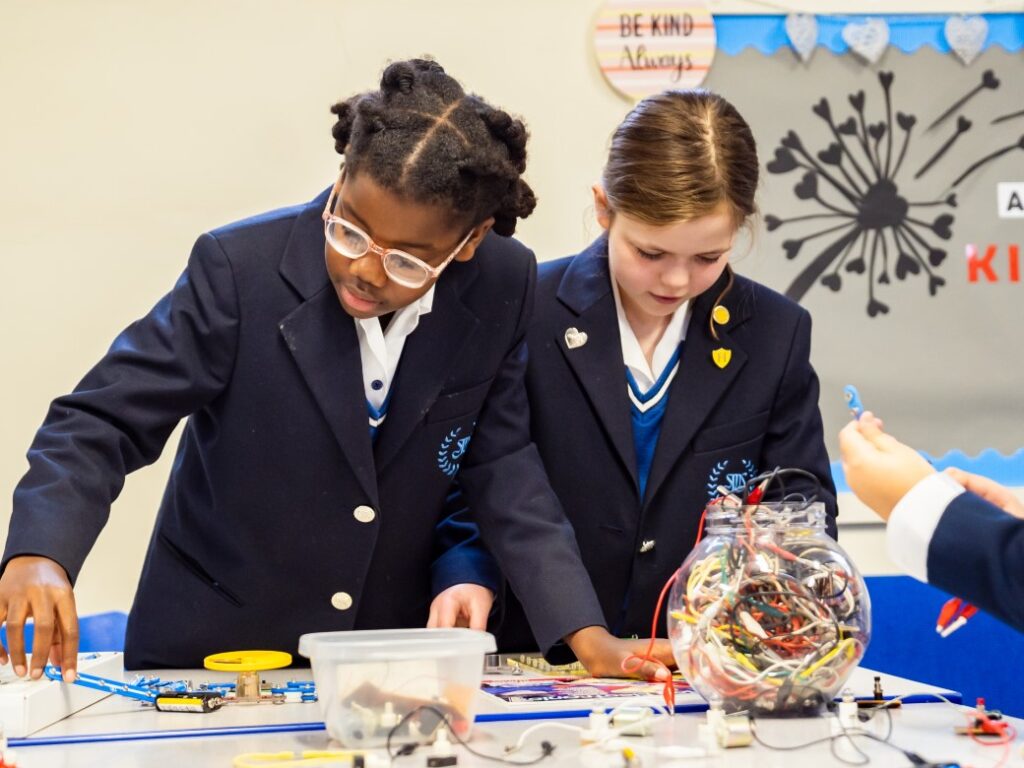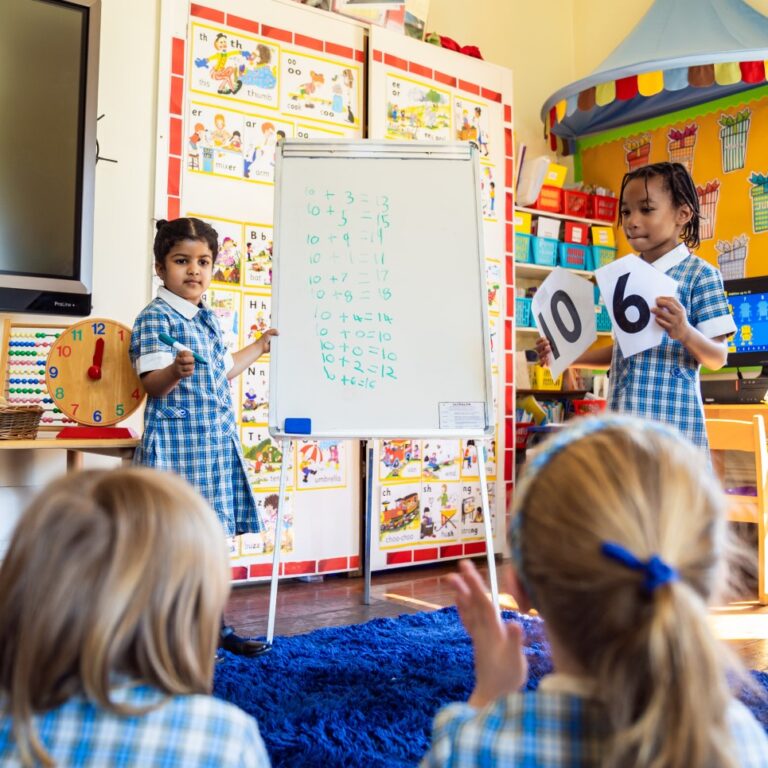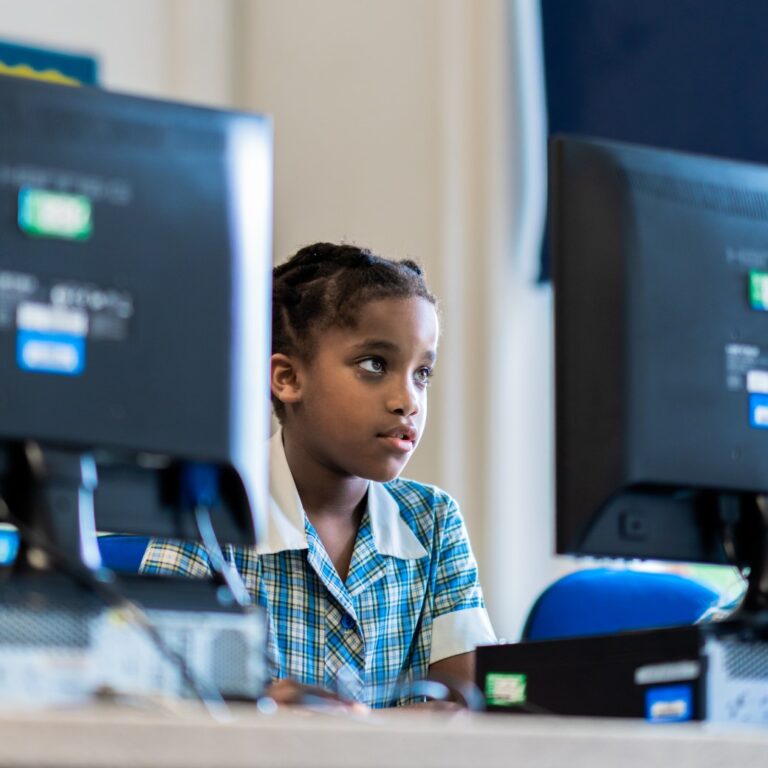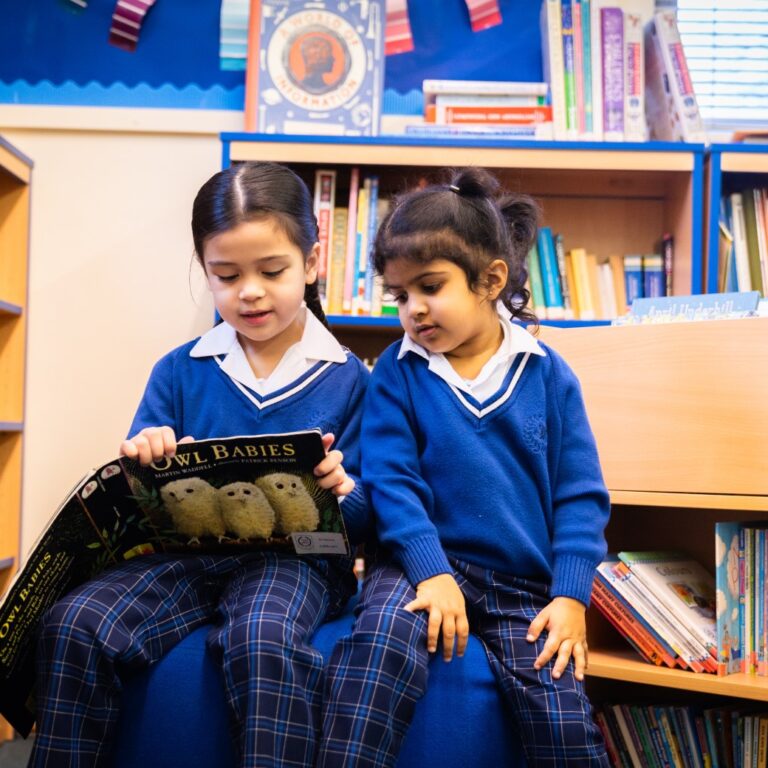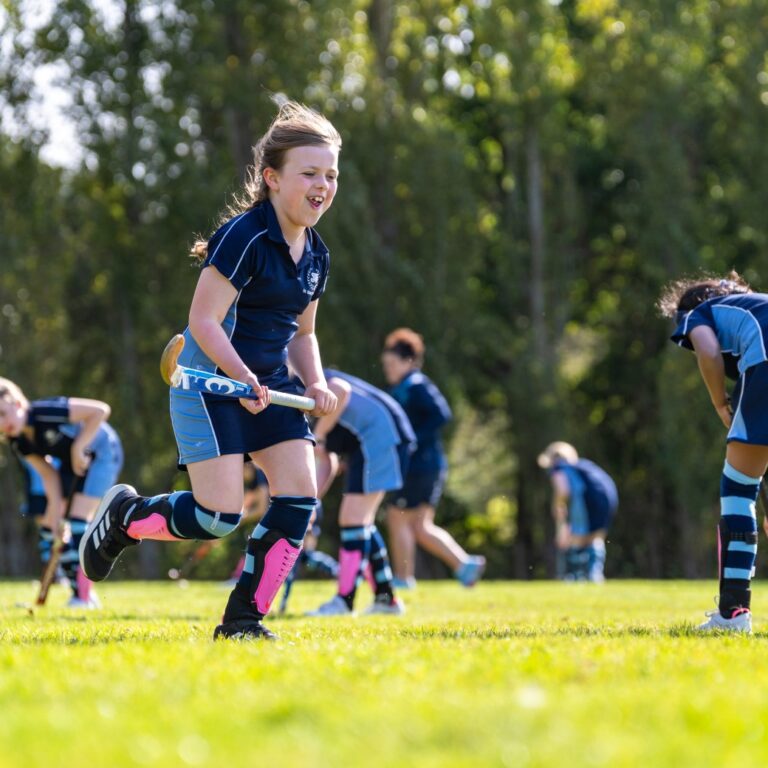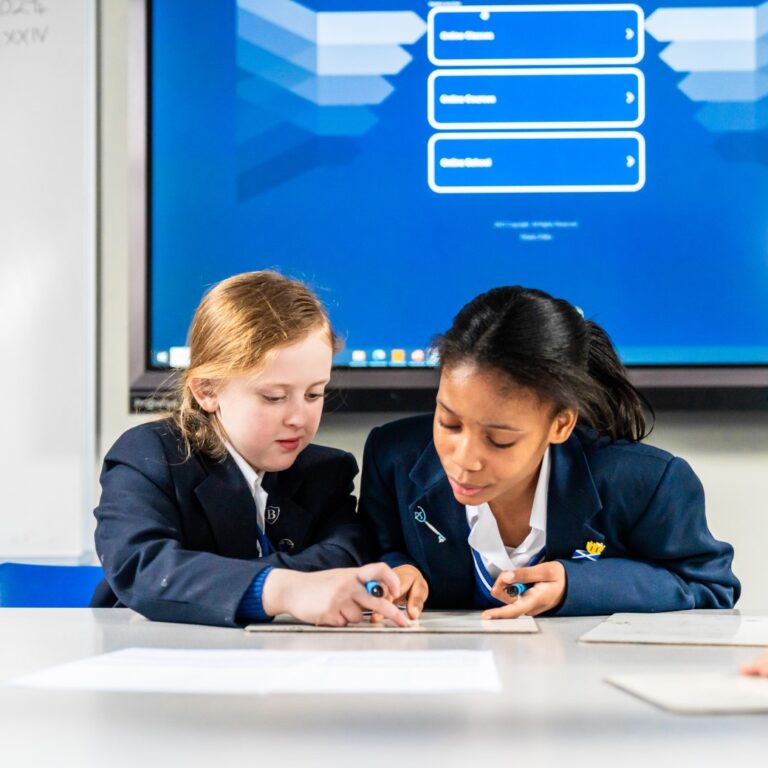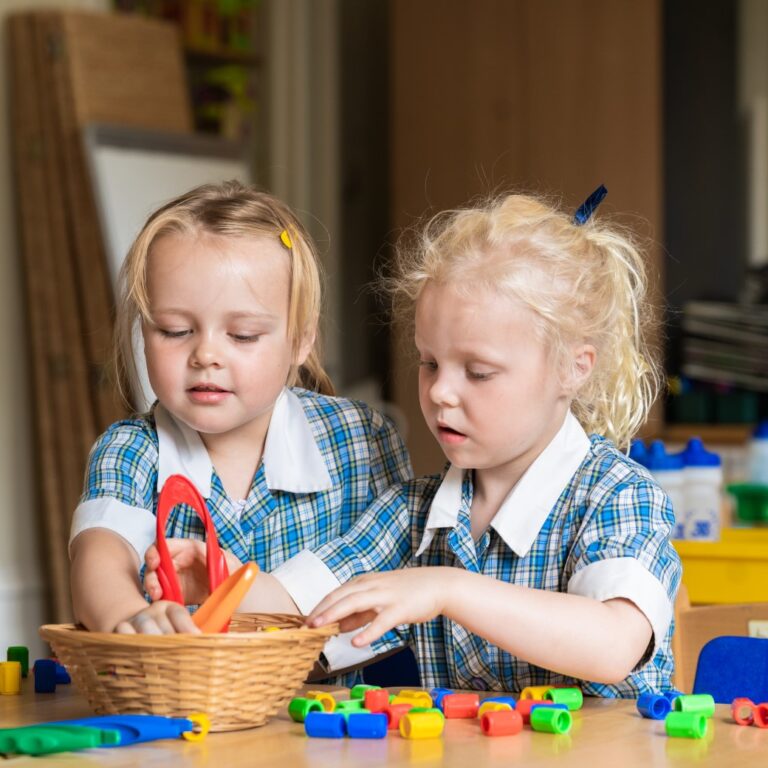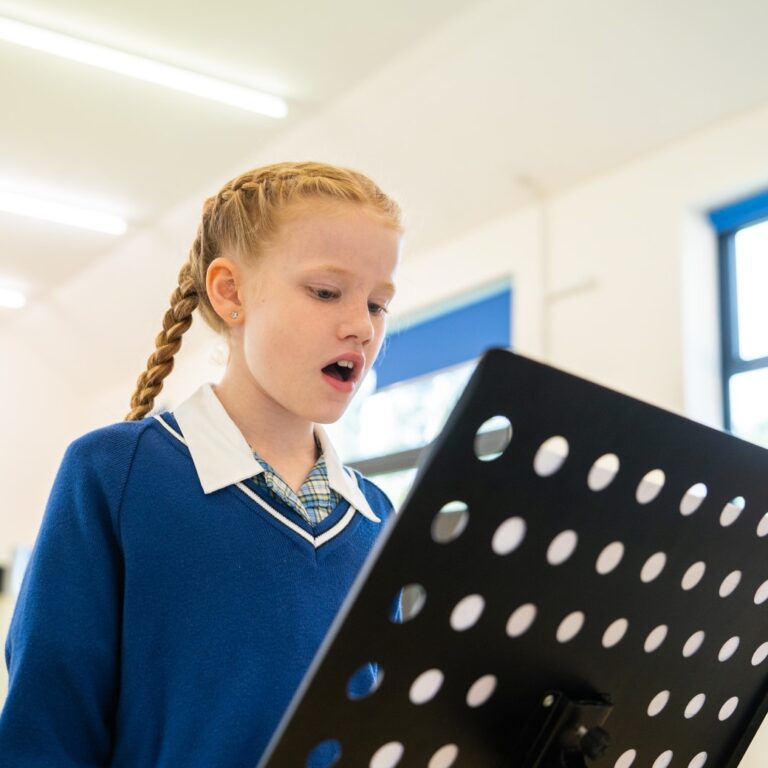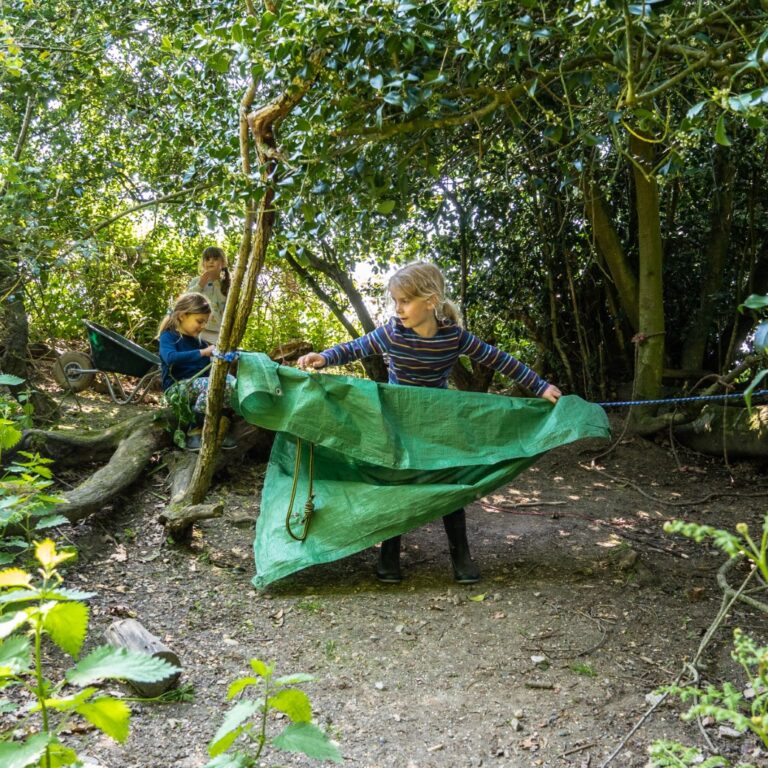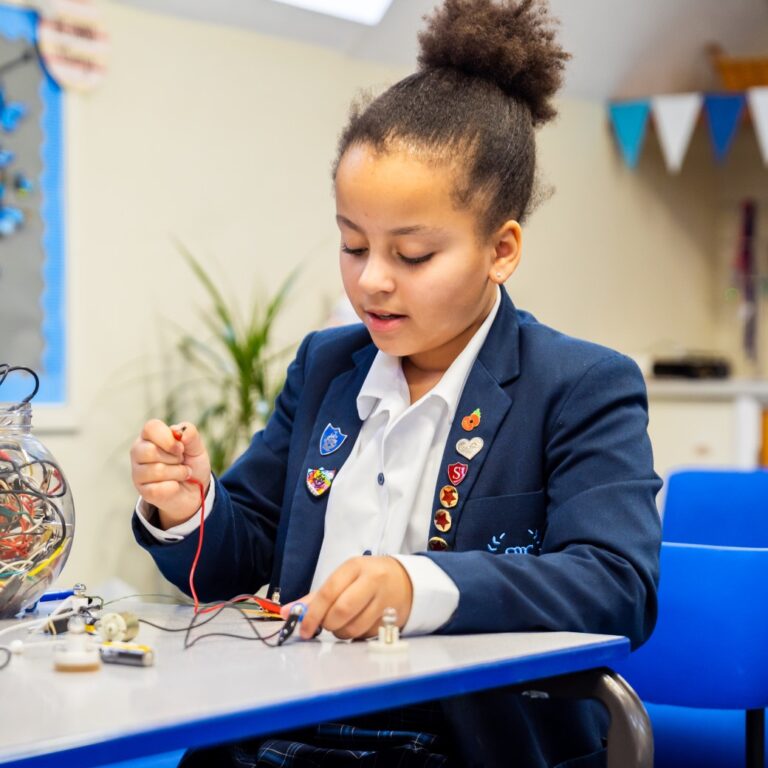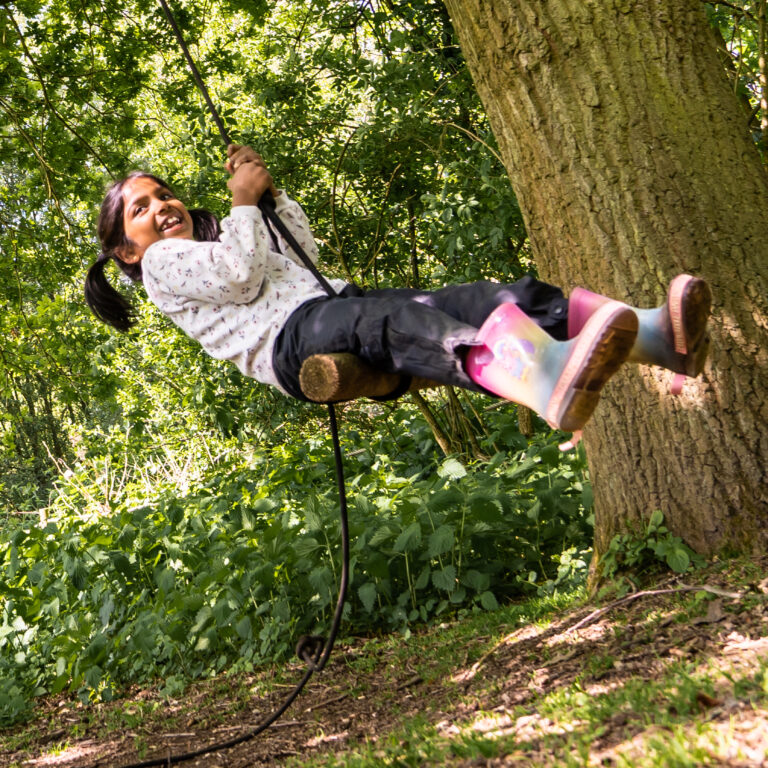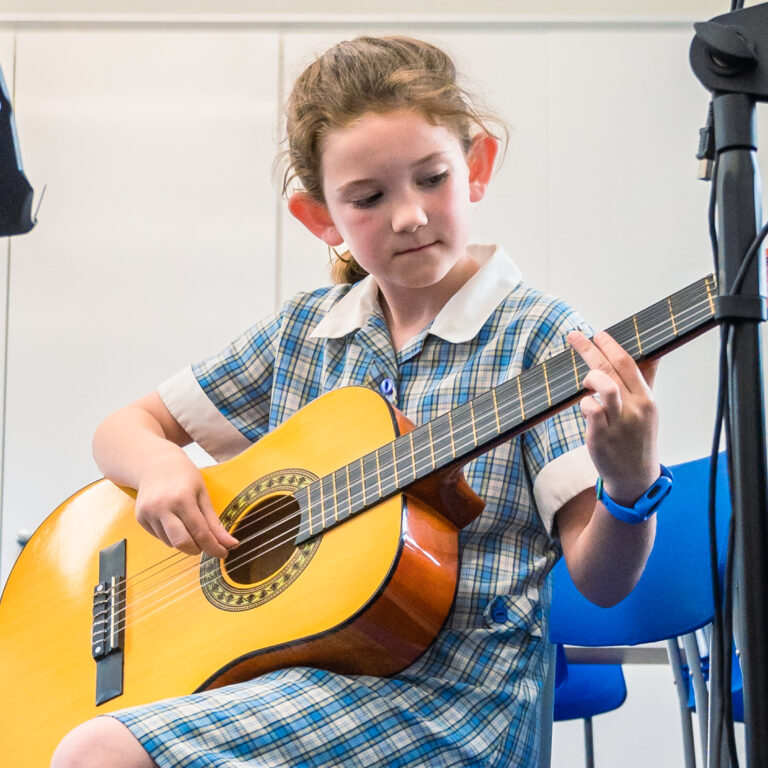In our small classes, each child receives just the right amount of support and challenge. This enables the girls to realise their innermost academic potential. We also equip pupils to be independent learners. For example we encourage pupils to ask questions and to find out the answers themselves, continually expanding their learning.
Balanced curriculum
The Lower School curriculum is varied and lively. Pupils study English, Maths, Science, ICT, Languages and Humanities. In addition, the girls follow a rich Personal Social Health, Citizenship and Economic Education programme. This includes philosophical enquiries which encourages pupils to form their own opinions, while listening to other points of view.
We broaden pupils’ horizons through Music, Art, Drama, Sport and Forest School. These are often taught by specialist teachers.

